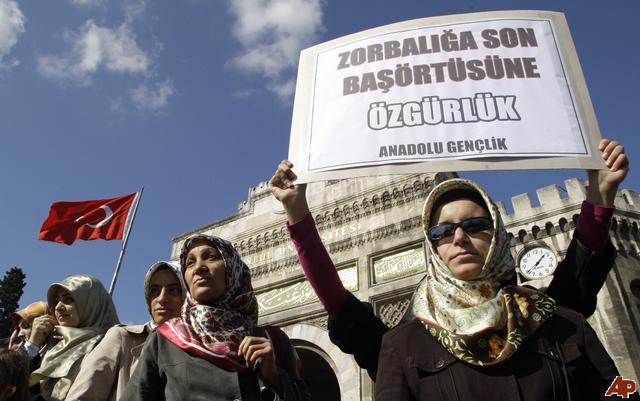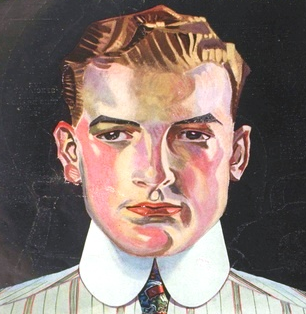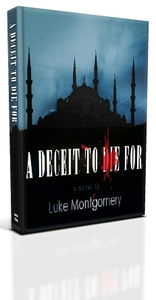As all of my friends know, I love language and revel in the beauty of great literature and poetry. I can read Chesterton's The Ballad of the White Horse twice a year and never tire of the rousing call to battle (see below).
But as a fluent Turkish speaker, one of my greatest frustrations is communicating the beauty of the Turkish language with my English-speaking friends. And one of the greatest repositories of beautiful Turkish can be found in Turkish proverbs.
One of my favorites is "Dinsizin hakkından imansız gelir." With only four words, it is both pithy and powerful.
A literal translation is so painfully inadequate that I hate to even give it, but in the interest of full disclosure and to demonstrate the linguistic disconnect, here goes...
"The faithless overcome the irreligious."
Of course, this literal rendering falls abysmally short of communicating anything at all in English. A paraphrased version might be "those who are irreverent and cruel can only be overcome by someone who equals them in their disregard for faith (virtue)." The problem is obvious. The beautiful brevity that makes the proverb so attractive is gone.
The other day I decided I had to find a more dynamic translation of this proverb and came up with the following.
"It takes a reprobate to bring the Devil to heel."
I probably love this proverb so much because of some primitive Rambo-type psyche, but it just seems to make sense. Chesterton's call to arms seems to communicate a similar idea. It sometimes takes brute force to overcome evil.
I would love to hear any suggestions for a similar dynamic rendering in English or any semantic equivalent proverb in English. In the meantime, enjoy the following excerpt from the Ballad of the White Horse...
"Brothers at arms," said Alfred,
"On this side lies the foe;
Are slavery and starvation flowers,
That you should pluck them so?
"For whether is it better
To be prodded with Danish poles,
Having hewn a chamber in a ditch,
And hounded like a howling witch,
Or smoked to death in holes?
"Or that before the red cock crow
All we, a thousand strong,
Go down the dark road to God's house,
Singing a Wessex song?
"To sweat a slave to a race of slaves,
To drink up infamy?
No, brothers, by your leave,
I think Death is a better ale to drink,
And by all the stars of Christ that sink,
The Danes shall drink with me.
"To grow old cowed in a conquered land,
With the sun itself discrowned,
To see trees crouch and cattle slink--
Death is a better ale to drink,
And by high Death on the fell brink
That flagon shall go round.
"Though dead are all the paladins
Whom glory had in ken,
Though all your thunder-sworded thanes
With proud hearts died among the Danes,
While a man remains, great war remains:
Now is a war of men.
...
"And now two blasts, the hunting sign,
Because we turn to bay;
But I will not blow the three blasts,
Till we be lost or they.
"And now I blow the hunting sign,
Charge some by rule and rod;
But when I blow the battle sign,
Charge all and go to God."
Wild stared the Danes at the double ways
Where they loitered, all at large,
As that dark line for the last time
Doubled the knee to charge--
And caught their weapons clumsily,
And marvelled how and why--
In such degree, by rule and rod,
The people of the peace of God
Went roaring down to die.
But as a fluent Turkish speaker, one of my greatest frustrations is communicating the beauty of the Turkish language with my English-speaking friends. And one of the greatest repositories of beautiful Turkish can be found in Turkish proverbs.
One of my favorites is "Dinsizin hakkından imansız gelir." With only four words, it is both pithy and powerful.
A literal translation is so painfully inadequate that I hate to even give it, but in the interest of full disclosure and to demonstrate the linguistic disconnect, here goes...
"The faithless overcome the irreligious."
Of course, this literal rendering falls abysmally short of communicating anything at all in English. A paraphrased version might be "those who are irreverent and cruel can only be overcome by someone who equals them in their disregard for faith (virtue)." The problem is obvious. The beautiful brevity that makes the proverb so attractive is gone.
The other day I decided I had to find a more dynamic translation of this proverb and came up with the following.
"It takes a reprobate to bring the Devil to heel."
I probably love this proverb so much because of some primitive Rambo-type psyche, but it just seems to make sense. Chesterton's call to arms seems to communicate a similar idea. It sometimes takes brute force to overcome evil.
I would love to hear any suggestions for a similar dynamic rendering in English or any semantic equivalent proverb in English. In the meantime, enjoy the following excerpt from the Ballad of the White Horse...
"Brothers at arms," said Alfred,
"On this side lies the foe;
Are slavery and starvation flowers,
That you should pluck them so?
"For whether is it better
To be prodded with Danish poles,
Having hewn a chamber in a ditch,
And hounded like a howling witch,
Or smoked to death in holes?
"Or that before the red cock crow
All we, a thousand strong,
Go down the dark road to God's house,
Singing a Wessex song?
"To sweat a slave to a race of slaves,
To drink up infamy?
No, brothers, by your leave,
I think Death is a better ale to drink,
And by all the stars of Christ that sink,
The Danes shall drink with me.
"To grow old cowed in a conquered land,
With the sun itself discrowned,
To see trees crouch and cattle slink--
Death is a better ale to drink,
And by high Death on the fell brink
That flagon shall go round.
"Though dead are all the paladins
Whom glory had in ken,
Though all your thunder-sworded thanes
With proud hearts died among the Danes,
While a man remains, great war remains:
Now is a war of men.
...
"And now two blasts, the hunting sign,
Because we turn to bay;
But I will not blow the three blasts,
Till we be lost or they.
"And now I blow the hunting sign,
Charge some by rule and rod;
But when I blow the battle sign,
Charge all and go to God."
Wild stared the Danes at the double ways
Where they loitered, all at large,
As that dark line for the last time
Doubled the knee to charge--
And caught their weapons clumsily,
And marvelled how and why--
In such degree, by rule and rod,
The people of the peace of God
Went roaring down to die.

 RSS Feed
RSS Feed

